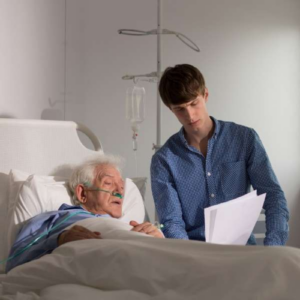Nursing home abuse is a deeply concerning issue that affects vulnerable individuals who have entrusted their care to others. South Carolina recognizes the gravity of this problem and has taken significant steps to prevent and combat nursing home abuse. In this article, we will explore the efforts made by the state and the legal requirements in place to ensure the safety and well-being of nursing home residents.
The State’s Commitment
South Carolina has demonstrated a strong commitment to addressing nursing home abuse through legislation, enforcement, and support for victims. The state recognizes that protecting elderly and disabled residents in nursing homes is a top priority, and various measures have been implemented to achieve this goal.
Legal Requirements
- Licensing and Certification: Nursing homes in South Carolina must obtain a license from the Department of Health and Environmental Control (DHEC) to operate legally. The DHEC ensures that facilities comply with state and federal regulations, conduct regular inspections, and assess the quality of care provided.
- Staffing Ratios and Training: Adequate staffing is crucial to maintaining a safe environment in nursing homes. South Carolina requires facilities to maintain a sufficient number of qualified staff members to meet residents’ needs. Additionally, staff members must undergo specific training programs to ensure they are equipped to handle the responsibilities associated with caring for vulnerable individuals.
- Abuse Reporting: South Carolina law mandates the reporting of suspected abuse, neglect, or exploitation of nursing home residents. Any individual, including staff members, volunteers, or visitors, who believes that abuse has occurred must report it to the appropriate authorities promptly. Failure to report suspected abuse is a criminal offense.
- Resident Rights: South Carolina upholds the rights of nursing home residents and enforces regulations to protect them. These rights include the right to be treated with dignity and respect, the right to receive appropriate medical care, and the right to live in a safe and clean environment. Violations of these rights can result in legal action against the facility.
- Inspections and Investigations: The DHEC conducts regular inspections of nursing homes to evaluate compliance with state and federal regulations. If a violation is identified, appropriate enforcement actions are taken, ranging from fines to license revocation. Complaint investigations are also conducted in response to reports of abuse or neglect.
Prevention and Support Initiatives
South Carolina has implemented several prevention and support initiatives to combat nursing home abuse and provide assistance to victims. These initiatives include:
- Public Awareness Campaigns: The state actively promotes public awareness of nursing home abuse, educating residents, families, and caregivers about the signs of abuse, reporting procedures, and available resources.
- Ombudsman Program: South Carolina’s Ombudsman Program provides advocacy services for nursing home residents. Trained ombudsmen act as independent representatives, investigating complaints, resolving conflicts, and working to improve the quality of care provided.
- Adult Protective Services: South Carolina’s Department of Social Services operates Adult Protective Services (APS), which investigates allegations of abuse, neglect, or exploitation of vulnerable adults. APS collaborates with law enforcement and other agencies to ensure the safety and well-being of nursing home residents.
Challenges in Combating Nursing Home Abuse
While South Carolina has made significant efforts to prevent and combat nursing home abuse, challenges still exist in addressing this complex issue. Some of the key challenges include:
Underreporting: Nursing home abuse is often underreported due to various factors such as fear, intimidation, or the inability of residents to communicate their experiences effectively. Many victims may be hesitant to come forward or may not have a support system in place to advocate for them. Efforts should be made to encourage reporting and create a safe environment for victims to share their stories.
- Staffing and Training: Adequate staffing levels and proper training for nursing home employees are critical in ensuring the well-being of residents. However, shortages of qualified staff and inadequate training programs can lead to increased vulnerability and potential for abuse. Continued investment in recruitment, training, and retention of qualified personnel is essential to address this issue effectively.
- Facility Oversight: While inspections and investigations are conducted regularly, it is essential to ensure that these processes are thorough and comprehensive. Monitoring the quality of care provided by nursing homes, addressing deficiencies promptly, and holding facilities accountable for violations are crucial steps in preventing abuse. Regular reviews and improvements to oversight procedures can enhance the effectiveness of these measures.
- Education and Awareness: Public awareness and education initiatives play a vital role in preventing nursing home abuse. Informing residents, families, and caregivers about the signs of abuse, reporting procedures, and available resources can empower them to take action. Ongoing educational campaigns should be implemented to keep the issue in the public eye and promote collective responsibility in preventing abuse.
- Support for Victims: Nursing home abuse can have a devastating impact on victims, both physically and emotionally. Providing adequate support services, counseling, and resources for victims and their families is crucial to assist them in their journey toward healing and recovery. Collaborating with community organizations and support groups can help ensure that victims receive the necessary care and support beyond the legal process.
South Carolina’s efforts to prevent and combat nursing home abuse are commendable. The state’s legal requirements, combined with prevention initiatives and support programs, demonstrate a commitment to protecting the well-being and rights of nursing home residents. However, it is crucial to remain vigilant and take action when abuse is suspected or detected.
If you or a loved one has experienced nursing home abuse, it is essential to seek legal assistance from the reputable Christian & Christian Law firm in South Carolina. We can provide the guidance and support needed to navigate the legal system, seek justice, and hold responsible parties accountable.
Together, let us continue to raise awareness, report abuse, and support those affected by nursing home abuse. By working collectively, we can create a society where every individual, regardless of age or ability, receives the care, respect, and dignity they deserve.
